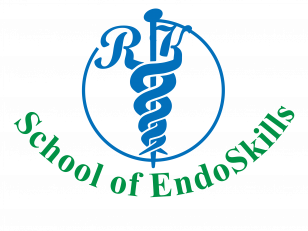Hands-on Laparoscopy Training under Expert Guidance
We have a unique concept where the doctors can get trained in the field of laparoscopy, and after the training they can independently perform their cases. This integrated laparoscopy training course is an important postgraduate opportunity for surgeons and gynaecologists to be trained in laparoscopic surgery and its underpinning technologies in depth. Our laparoscopic surgery fellowship centre is based in the coastal town of Mangalore, Karnataka, India.
The candidate doesn’t need to attend the additional workshop or programme after they have taken the course, be it for basic laparoscopy or for suturing and knotting. There will be plenty of time to practise the hands-on exercise until it is perfect.The institute is not influenced by an advertiser, sponsor, or company.
We don’t use a simple endo-trainer because it cannot provide a real feeling to the surgeon, and the basic concepts of depth perception and hand-eye coordination will not be attained. Instead, we provide real instruments to every candidate so that they can learn all the essential skills of minimal access surgery.
Courses and Certifications
| Courses | Eligibility | Duration |
|---|---|---|
| FMAS | MBBS, MS, MD, DNB, DGO, MCH, Residents(surgical) | 10 Days |
| FMAS - Advanced | MS, MD, DGO, DNB, MCH, Residents(surgical) | 20 Days |
| Advanced MAS Training For Nurses | B.Sc. Nursing, GNM, ANM | 3 Days |
| Advanced MAS Training For Theatre Technicians | DOT/ OT Technician or Assistant | 3 Days |
| Basic Laparoscopic Skill Training | Medical Students/Interns | 3 Days |
| FMAS | Ayush Doctors | 10 Days |
Modules
| Sl. No. | Module | Content | Duration |
|---|---|---|---|
| I | Introduction & Equipment Orientation | Lectures | 6 hours |
| Hands-on | 6 hours | ||
| II | Design | Lectures | 6 hours |
| Hands-on | 6 hours | ||
| III | Skill Development | Lectures | 6 hours |
| Hands-on (Extracorporeal) | 12 hours | ||
| Hands-on (Intra corporeal) | 12 hours | ||
| IV | Assessment | Knowledge | 2.5hour |
| Skill | 2.5hour | ||
| Total | 65 hours | ||
Hands on Laparoscopic Training
Individual Attention
Unlike open surgery, where the surgeon is facilitated verbally and manually through assistance from the other side of the operating table, in laparoscopic surgery, verbal directions are not of much help, and there is an increased dependency on the technical skills of the surgeon. To achieve these basic skills and to imbibe the principles of laparoscopic surgery, training in simulated operative environments and observation of state-of-the-art surgery in the operating room have become a necessity. With our expert faculty guidance, you can be assured of building a solid foundation in laparoscopy.
Why Laparoscopy?
The concept of laparoscopy gained significance with the growth of civilizations, modernization, and development to reduce the suffering that was already present in the form of a disease that needed to be treated.
The growth of laparoscopic surgeries represents the way the medical fraternity’s thought process became milder, more empathetic, and peace-loving.
Rather than the enthusiasm and heroism of making larger incisions and sending the patient home with a wide, thick, and painful scar that fights without healing for a long time, at least some surgeons in modern medicine history believed in the more ethical and empathetic concept of causing less harm, pain, and morbidity.
If this is the ethical side of the story, there is a much more parallel and equally significant financial side too.
Our Faculty
Why Mangalore?
Mangalore, officially known as Mangaluru, is one of the most peaceful and attractive cities in the state of Karnataka. It is 352 kilometres west of Bangalore, between the Arabian Sea and the Western Ghats. Mangalore is the state’s only city to have all four modes of transportation: air, road, rail, and sea.
Mangalore is named after the deity Mangaladevi, the presiding deity of the ancient and proud ninth-century Mangaladevi Temple. Mangalore is a multi-lingual city where several prominent languages such as Tulu, Konkani, Kannada, and Beary are spoken. However, the high literacy rate and the prominent emphasis on cultural and tourism development in the region make sure that there is absolutely no gap in communication.
As a result, Mangalore is an ideal destination for your laparoscopic fellowship training in India.












I remember that before coming to this school of laparoscopy, I had no knowledge of laparoscopy. My trip to the R K School was fruitful. My time and efforts to come to this school all the way from Tanzania were worth the knowledge that I received. The teachers and assistants were excellent, and the hospitality I received was excellent. I would always recommend any person who wishes to study this course go to this institute.